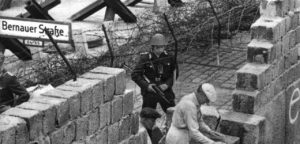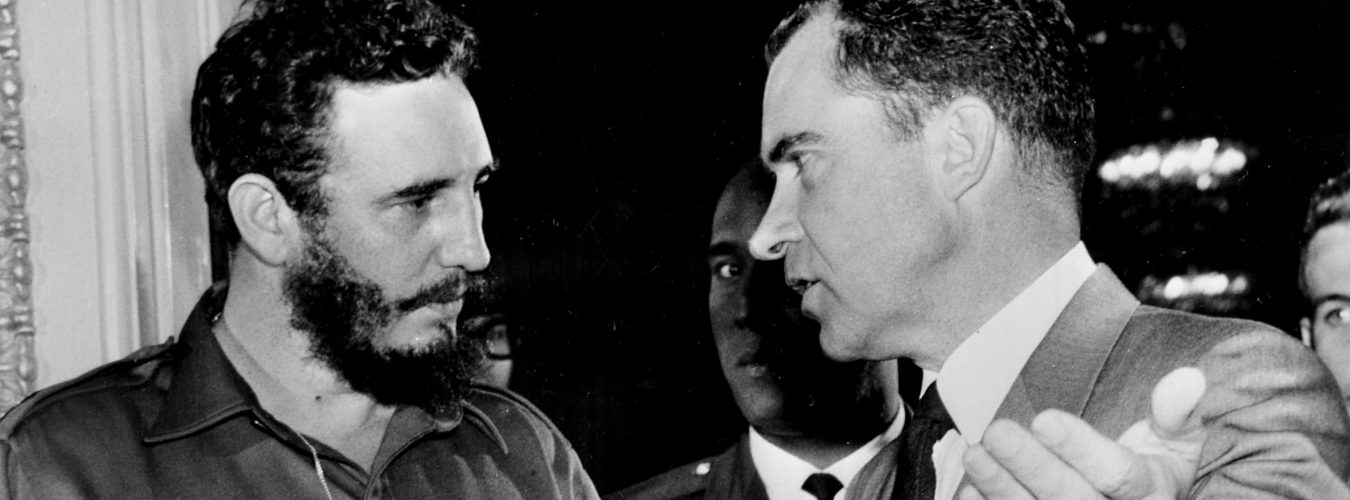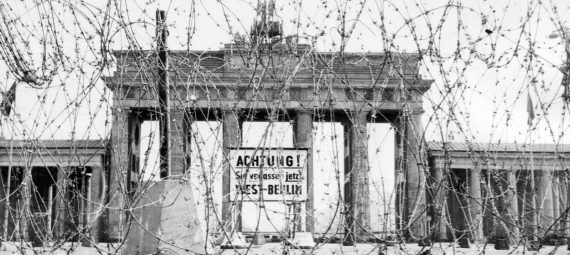A New Berlin
The divided city of Berlin experienced quite disparate fortunes, with West Berlin flourishing while the Eastern side toiled. In search of better fortunes, thousands of East Germans fled west across the city’s border, weakening not only the city but also proving an international embarrassment. In August 1961, Soviet Premier Nikita Khrushchev ordered the East German government to blockade all pathways between the two sides of the city to prevent any more from escaping; this blockade would come to be known as the Berlin Wall.
A Tale of Two Cities
While the Cold War reached the height of its tension at the Cuban Missile Crisis and led to proxy wars that devastated countries such as Korea and Vietnam, perhaps the most contentious front of the Cold War was between East and West Germany. Following the Nazi surrender, Germany was divided in half with the western portion being controlled by the Allies and the east being Soviet-controlled. Though Berlin was situated deep in East Germany, its position as the political, economic, and cultural center of United Germany necessitated that the Allies maintained some amount of control over it. The Berlin Blockade and responding allied airlift of 1948-1949 proved that the Allies were willing to commit vast economic efforts to the promotion of capitalism, and this commitment translated to extensive economic success in West Germany and Berlin. The United States was deeply invested in the prosperity of West Germany, stationing military bases there and investing heavily in West German companies. Unlike other proxy nations, such as Korea or Cuba, Germany did not experience a civil war but instead underwent a nonviolent division which allowed for both sides to see which economic ideology truly reigned supreme. While West Germany had established itself as a self-sustaining economy, East Germany comparatively languished. In order to keep pace with Western Germany, the Socialist Party of Germany (in East Germany) authorized several Five-Year plans, which increased nationalization of industries. However, these plans would largely fail, and pushed many East German companies to relocate west, with many citizens following suit. This mass exodus of both people and business worried the East German government, but enraged Soviet leadership. In the weeks and months leading up to August 13th, an increasing number of East Germans fled west, with August 12th recording 2,400 emigrants, the highest single-day total ever recorded. The blockade began with barbed wire and concrete barriers, but in just two weeks a 25-mile concrete wall separated the two cities. Allied leaders immediately threw their support behind not only the West Germans, but particularly the East Germans with the rhetoric of a captive people in need of liberation touted by western nations.
Media Reactions
The New York Times heavily reported the progress of the construction of the Berlin Wall, and with it came near-propaganda levels of public support for West Germany, but also vilifying speech against the Soviets and communism. Using words like “tottering” to describe the East German regime and describing the Soviet efforts as lawless deal-breakers, the Times did not hide their pro-America bias in their reporting of the situation. While describing President Kennedy as having “solemnly proclaimed our [US’] determination to defend the freedom of West Berlin”, the August 15th edition of the Times refers to Khrushchev as the “Soviet ruler who stands in opposition to justice, law, and the sanctity of international agreements”. The rhetoric of the East Germans as unwilling captives of the Soviets is reflected in the edition the following day (August 16th), referring to East Berlin as a “beleaguered city” and blaming Soviet interference for the squalor of the East and the raising of the Berlin Wall. The August 16th edition further expanded on this sentiment by raising the United States as a righteous avenger limited in power by its own civility and justice. While the average reader may be spurred by this reading to call for direct U.S. intervention to save the East Germans, the paper cautions that doing so would endanger the lives of the East Germans: “We must, under our own principles (democracy, justice, liberty), live with evil even if by doing so we help stabilize tottering Communist regimes, as in East Germany”.

